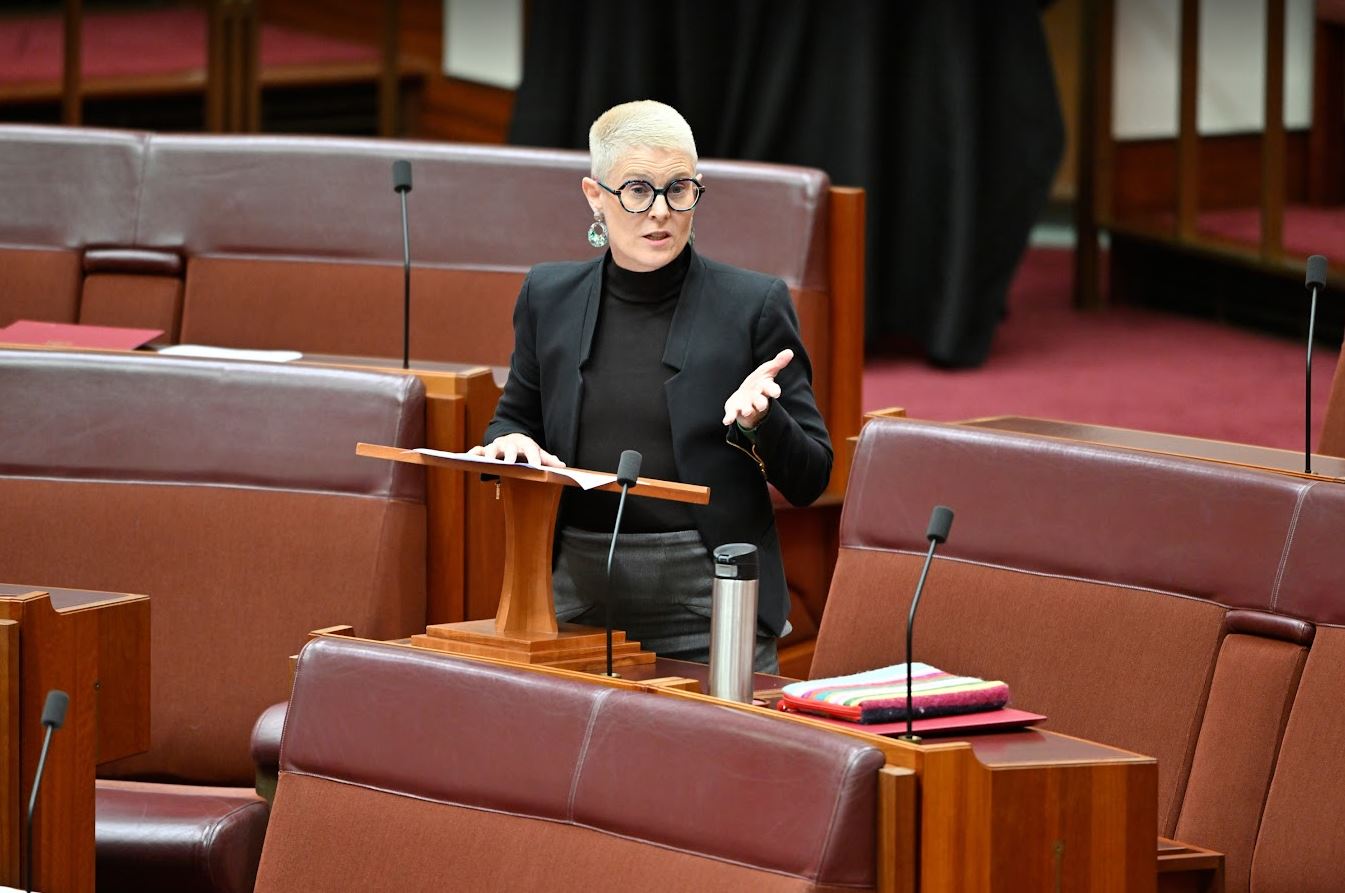
The Greens have opened up a new battleground with Labor on public education, announcing they will move to replace the 20% ceiling on the Commonwealth share of government school funding with a 25% floor.
If passed, The Australian Education Amendment (Save Our Public Schools) Bill 2023 would abolish the so-called “20% cap” on the Commonwealth’s share of total public school funding; replace the cap with a 25% minimum contribution; and amend the act to require the Education Minister to ensure that “every school-aged child in Australia has access to a fully funded government school”.
“Australia’s public school system is on the brink. Teachers are abandoning the profession, results are falling, and millions of kids are being left behind,” Greens spokesperson on schools, Senator Penny Allman-Payne said in a statement.
“It’s no secret what’s happening: 98% of public schools in the country are underfunded. Every year our school kids are robbed of $6.6 billion. That means schools don’t have the money to pay for the bare minimum level of staffing and educational resources they need.”
“Under existing funding arrangements, the Federal Government is meeting its 20% commitment, but most states and territories are not paying their 80% share. Allman-Payne says that based on current trajectories, they never will.
Allman-Payne says the nation’s education system is confronted with “an absurd situation where the federal government, with vastly more revenue than the states and territories, is chiefly responsible for propping up the overfunded private sector”.
“Meanwhile, the states and territories, which are far more fiscally constrained, bear primary responsibility for funding the public system, which educates 85% of disadvantaged kids,” she said.
The Australian Education Union has been campaigning to fully fund every public school to 100% of their School Resourcing Standard (SRS) by 2028, saying nothing short of this will bring the change that young people – especially those who are struggling – need.
“Ensuring every child has the opportunity to reach their potential can only be realised through a fully funded public school system,” AEU federal president Correna Haythorpe said.
During the 2022 federal election, the Labor Party promised to deliver a ‘pathway’ to full funding for public schools. Haythorpe said the union is now making clear where that pathway needs to end.
“The Albanese Government must negotiate funding agreements with the states and territories that deliver 100 per cent of the SRS for every public school by 2028," she said.
Meanwhile, Australia’s Catholic schools want to see national policy initiatives become more aligned to student outcomes and centered on a strong evidence base, with better planning and costed outcomes.
National Catholic Education Commission executive director, Jacinta Collins, said Catholic education values the Federal Government’s recognition of the importance of the non-government school sectors in driving reform and improved educational outcomes.
"As we have stated in our submission to the Productivity Commission’s review of the National School Reform Agreement, Catholic education would like to see national policy initiatives become more aligned to student outcomes and centered on a strong evidence base, with better planning and costed outcomes," Collins told The Educator.
"We would also like to see greater consultation in the development of national and bilateral agreements with the non-government sector from the outset, and funding for teacher professional learning opportunities, such as support for teacher curriculum implementation and developing rich formative assessment resources."
Collins also highlighted the importance of support for the implementation of "consistent, high-quality standards" in initial teacher education, and a national approach to child protection and safety registration.
Independent Schools Australia said it is "critical" that all school sectors, government, and non-government, are consulted and engaged in the development of the national and bilateral agreements.
"Reforms that support schools and teachers in supporting wellbeing and meeting the challenges of finding and retaining teachers are critical for every sector," ISA CEO, Graham Catt, told The Educator.
"Reform should be supported by a strong evidence base. Independent schools are able to trial and evaluate new programs and initiatives and are early adopters of new technologies and pedagogical approaches. They are uniquely positioned to contribute evidence and examples that can help all schools achieve meaningful reform."
Catt said that for non-government schools it is critical that resources are available to ensure that all schools have the capacity and the capability to engage in specific national reform initiatives.
"This support is particularly important as Independent schools do not have access to centralised support mechanisms, and the administrative and resourcing impacts of implementing national reforms, along with any subsequent reporting and accountability requirements fall directly on individual schools," he said.
"Independent Schools Australia is committed to collaboration with the whole education sector to achieve the best outcomes for all Australian school students."
Catt said ISA support the Government’s objective of ensuring all schools - regardless of sector – are funded to 100% of the Schooling Resource Standard by the end of the decade.
"All non-government schools will be funded at this level by 2029. Around 40% are still, as agreed with the Government, in the process of transitioning down to this level," he said.
"Under the current model, funding is based a direct measure of parents’ capacity to contribute, baser on their income tax. Schools with the highest capacity to contribute receive the least amount of government funding."


